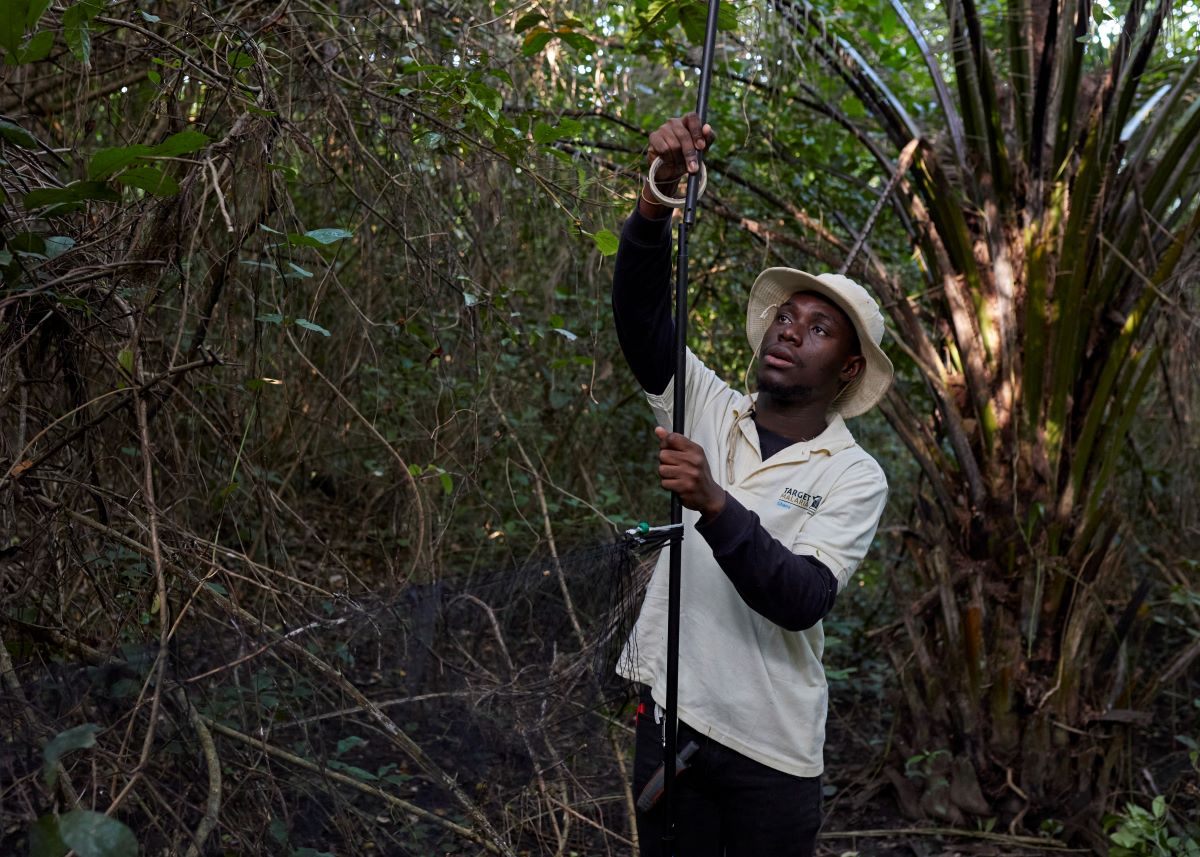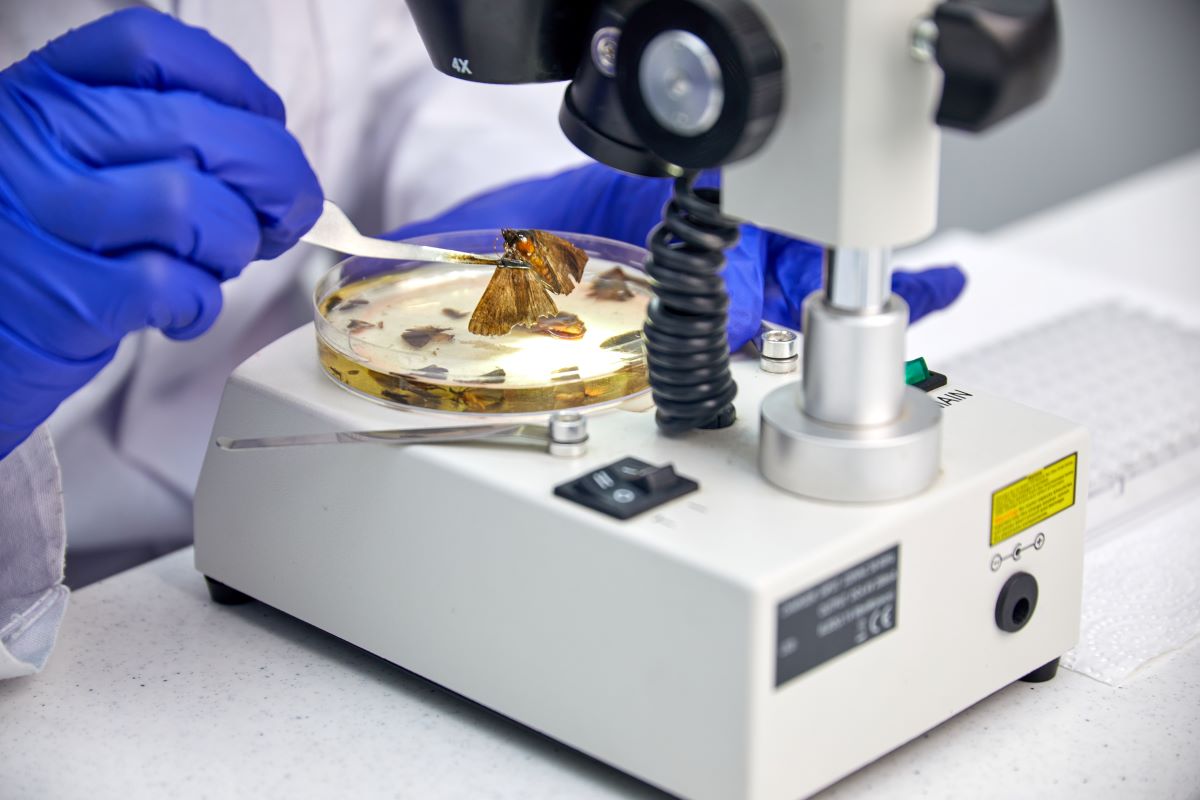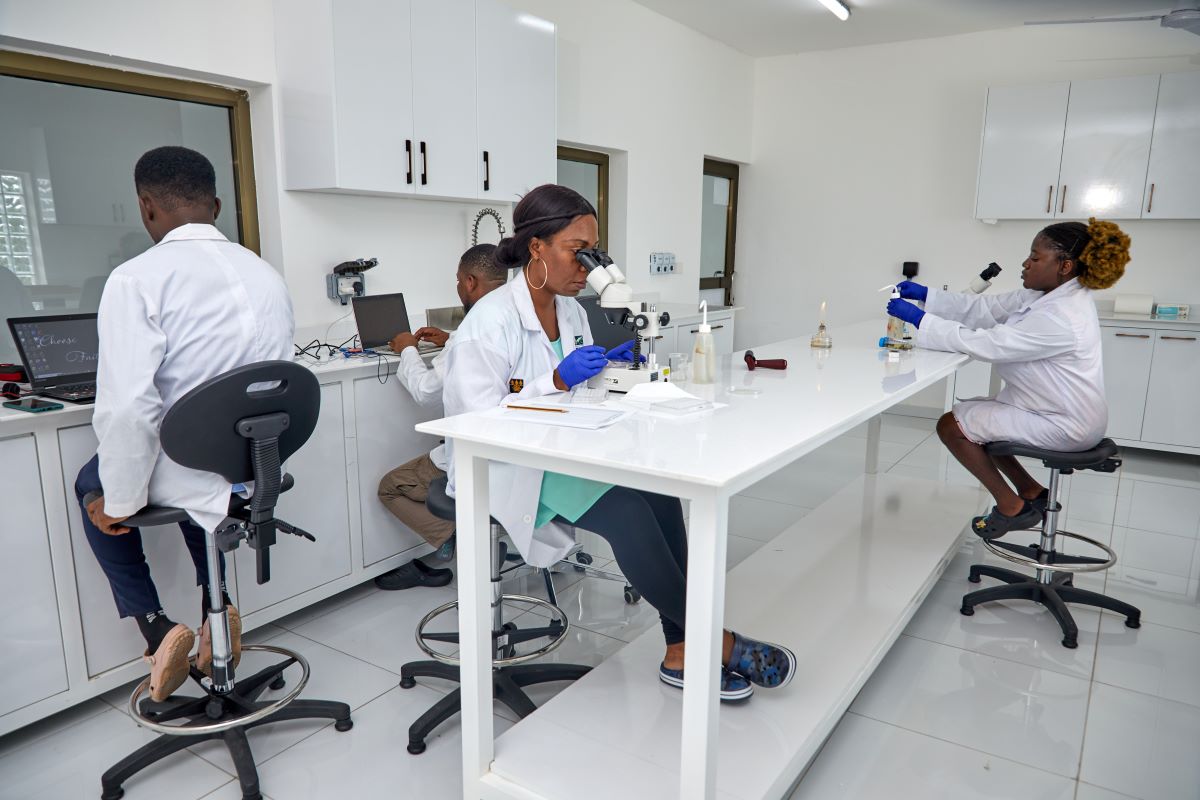Target Malaria is an international not-for-profit research consortium whose vision is a world free of malaria. The project is working to develop innovative genetic technologies to reduce the population of malaria-transmitting mosquitoes in sub-Saharan Africa.
A team of entomologists and ecologists at the University of Ghana have been working with colleagues from the University of Oxford and the Centre for Biodiversity Genomics de l’ University of Guelph on a groundbreaking project to investigate the potential ecological consequences of reducing the population of the malaria mosquito Anopheles gambiae. This research is a key part of our work at Target Malaria, a not-for-profit research consortium whose aim is to develop new tools to reduce malaria transmission.

Field assistant Samuel Anie Amoah setting up a net for sample collections. Photograph: Target Malaria
The “ecological observatory project” studies the ecological interactions between An.gambiae and other species in the local ecosystem, including its larval competitors and predators, adult predators, and plant species that it might visit for sugar meals. By collecting data on the community ecology surrounding these mosquitoes, we can predict the effect, if any, that reducing their numbers could have on the ecosystem.

Researcher identifying collected samples in the laboratory at the University of Ghana. Photograph: Target Malaria
My research involves using DNA analyses to build a careful picture of the species interactions in the aquatic habitats in which the mosquito larvae develop, and the terrestrial habitats occupied by adult mosquitoes. To do so, we collect insects and samples from other species – including potential mosquito predators such as bats, birds, geckoes, spiders, fish and dragonflies. We use techniques for molecular identification, called ‘DNA barcodes’, to identify and link the species present and interacting in a given community with great precision. By analysing samples including the content of these species’ gut or faeces, we can determine who eats whom.
This research helps us identify the predators that feed on An. gambiae and predict what they might shift their feeding interactions to if An. gambiae numbers were to reduce. We also investigate potential competitive interactions with other mosquito species to ensure a reduction in An. gambiae wouldn’t result in an increase in another vector species. And we are confirming that An. gambiae are not central to pollination.

Target Malaria researchers working in the laboratory at the University of Ghana. Photograph: Target Malaria
We know that An.gambiae is an important species for humans because of its role as a vector of malaria, but so far, our studies have indicated that these mosquitoes do not play a central role in their communities. They are not effective pollinators and don’t visit the reproductive part of flowers nor carry pollen in the wild. In the food web, we have found An. gambiae in less than 2% of the samples processed so far and always amongst many other prey species that a predator is also eating. Final results from our research, which will be made publicly available, will enable us to better understand the role of these malaria-transmitting mosquitoes in the ecosystem. While some aspects of An.gambiae biology are well studied, the research in Ghana will provide a more detailed picture of this species’ broader ecological interactions and potential consequences to population suppression.
The DNA barcode library that Target Malaria is creating, as well as the wider ecological network, are among the biggest constructed to date around the world. While these data are being collected by the team to inform the broader work of the consortium, the project is also creating a wealth of information that will be publicly available for the greater scientific community.
